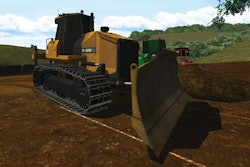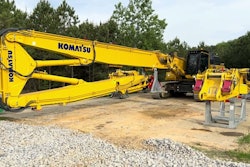Crane certification requirements by the U.S. Occupational Safety and Health Administration will take effect November 10, but crane operators will only have to be certified by crane type – not rated lifting capacity.
OSHA released guidance on its crane rules November 5, indicating that its final rule will not take effect before November 10, when enforcement of the existing certification requirements begins. The final rule removes a provision in the existing rules that requires operators to be certified by both crane type and capacity. For that reason, OSHA released the guidance to clear up confusion during the interim between the existing requirements’ taking effect and the new rule’s effective date.
Starting November 10, OSHA will accept operator certifications based on type of crane, and it will accept certification based on type and capacity. But only crane-type certification is required.
Enforcement of the rules on certification has been delayed since 2010 due to controversy over how operators should be certified. Part of that controversy centered on whether a crane operator’s certification should be based on a machine’s rated lifting capacity.
Following industry outcry, OSHA revised its final rule in May. The new pre-published version of the final rule says, “While testing organizations are not required to issue certifications distinguished by rated capacities, they are permitted to do so, and employers may accept them or continue to rely on certifications based on crane type alone.”
The final rule takes effect after it is published in the Federal Register. The National Commission for the Certification of Crane Operators (NCCCO) says it expects the new rule to be published later this year or early next year.
The new rule also seeks to clarify that it is the “employer’s duty to ensure the competency of crane operators through training, certification or licensing, and evaluation.”










